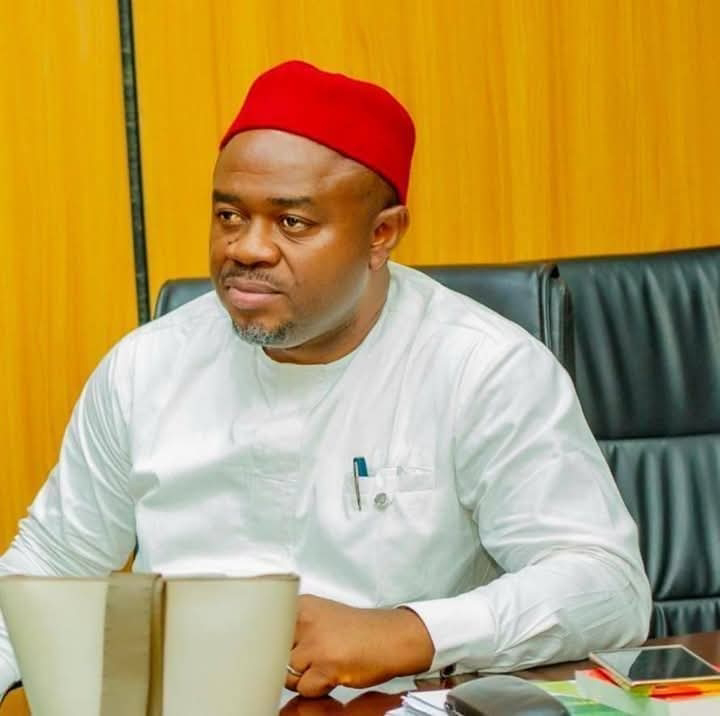The Voice of an Opposition Leader on Accountability and the Spirit of Democracy..
In a stirring and thought provoking address that has captured national attention, a prominent opposition leader in Udenu local government Barr. Emeka Abah has reignited the discourse on the urgent need for accountability in governance and the pivotal role of a healthy opposition in a thriving democracy. His words, delivered with conviction and clarity, are not merely a critique of the status quo but a blueprint for responsible leadership, civic engagement, and democratic resilience.
According to Barr. Abah , democracy is not sustained by elections alone but by the consistent, courageous effort to question power, examine policies, and demand transparency. “In any truly democratic society,” he began, “the opposition is not the enemy of the state; we are the conscience of the nation. We are here to remind those in power that they serve at the pleasure of the people not the other way around.”
Barr. Abah emphasized that governance should not be treated as a privilege but as one that must be continually earned through honesty, performance, and responsiveness. In his words, “Power is not a trophy; it is a tool to uplift lives. When leaders forget this, it is the duty of the opposition and indeed the citizens to hold them to account.”
Barr. Abah's speech addressed a troubling trend in many parts of the democratic world, where opposition voices are often dismissed, ridiculed, or suppressed. He warned against the dangers of a political culture that views dissent as disloyalty. “A nation that stifles criticism,” he said, “is on the path to tyranny. Democracy dies not with a bang, but with the silence of its dissenters.”
Central to his message was the call for issue based politics. He urged politicians across party lines to rise above petty squabbles and personality attacks, and instead focus on the real issues affecting citizens like poverty, unemployment, insecurity, corruption, poor infrastructure, and declining standards in education and healthcare. “We must stop playing politics with the lives of our people.
Importantly, the leader also acknowledged the responsibilities of the opposition itself. “We must not only critique; we must also provide solutions. We must be constructive in our criticism and clear in our alternatives. The people must see that we are not just waiting to take power, but that we are ready to lead with vision and integrity.”
Barr. Abah advocated for the strengthening of institutions such as the judiciary, anti corruption agencies, and the media, which he described as essential partners in the accountability process. He called for protections for whistleblowers and for the legal and constitutional reforms needed to ensure greater checks and balances in government.
His speech did not shy away from self reflection. He admitted that even within the opposition, there must be a commitment to internal democracy, discipline, and moral consistency. “We must live the values we preach. We must be accountable too to our members, to our supporters, and to the Nigerian people at large. Otherwise, we become no different from those we oppose.”
As he concluded, the room fell into a thoughtful silence, then erupted in applause not merely out of politeness, but out of recognition that the message spoke to the conscience of a nation in need of healing and redirection.
His closing words were both a challenge and a call to action: “Let us build a democracy where no one is above the law, where leadership is service, and where opposition is not an act of rebellion, but an act of responsibility. If we want a better country, then we must all be willing to speak truth to power—even when it is inconvenient.”
In an era where political conversation often descends into bitterness and blame, his address was a refreshing reminder that leadership, even from the opposition, can be visionary, principled, and patriotic. It was not just a speech it was a statement of purpose, a commitment to a better kind of politics, and an invitation to every Nigerian to join in building a country where accountability is not feared, but embraced.




Comments
Post a Comment